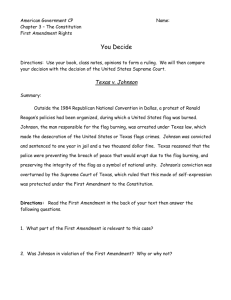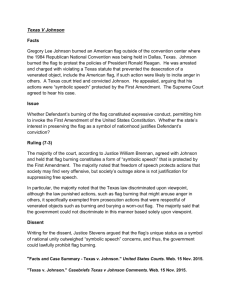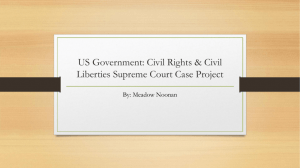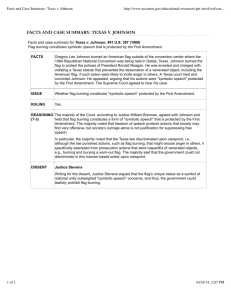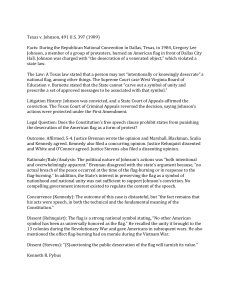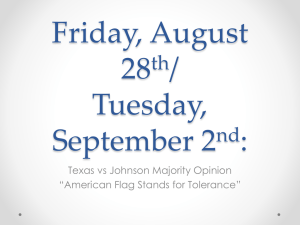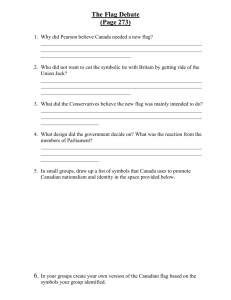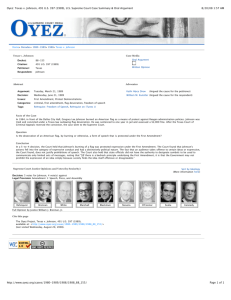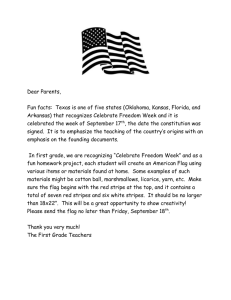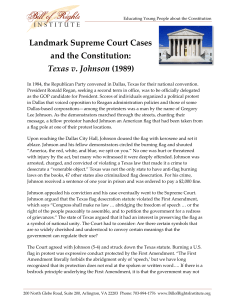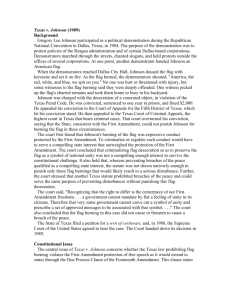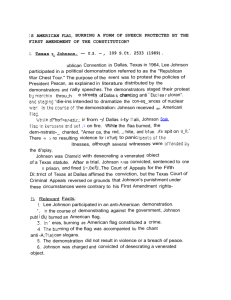Mock Case Scenario #5
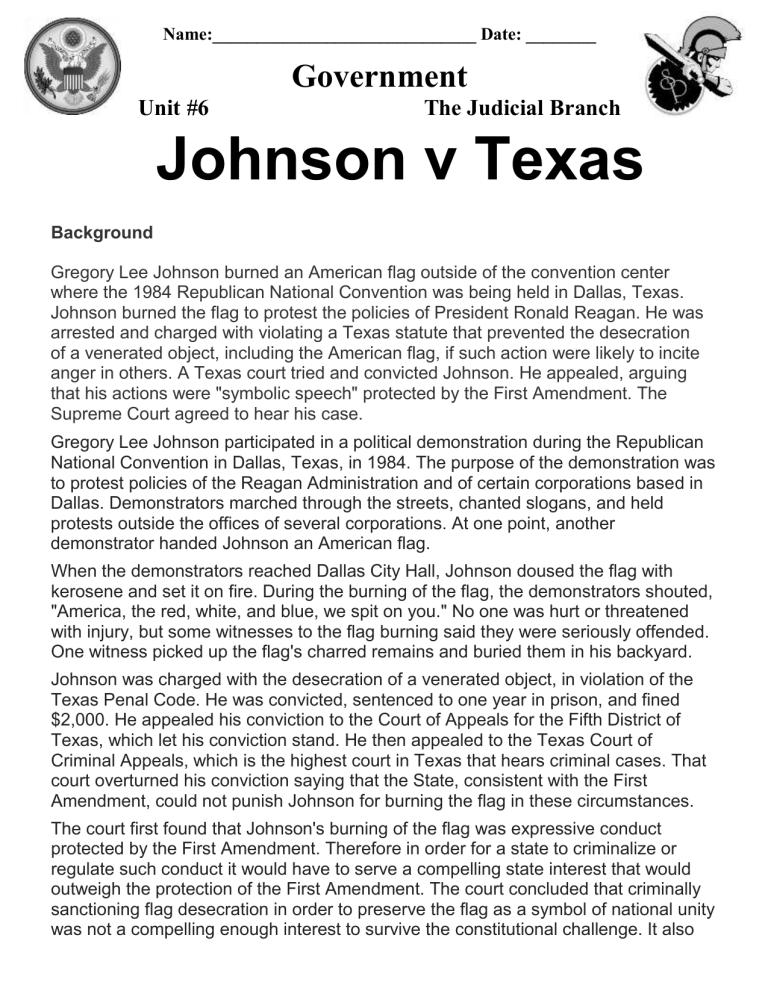
Name:______________________________ Date: ________
Government
Unit #6 The Judicial Branch
Background
Johnson v Texas
Gregory Lee Johnson burned an American flag outside of the convention center where the 1984 Republican National Convention was being held in Dallas, Texas.
Johnson burned the flag to protest the policies of President Ronald Reagan. He was arrested and charged with violating a Texas statute that prevented the desecration of a venerated object, including the American flag, if such action were likely to incite anger in others. A Texas court tried and convicted Johnson. He appealed, arguing that his actions were "symbolic speech" protected by the First Amendment. The
Supreme Court agreed to hear his case.
Gregory Lee Johnson participated in a political demonstration during the Republican
National Convention in Dallas, Texas, in 1984. The purpose of the demonstration was to protest policies of the Reagan Administration and of certain corporations based in
Dallas. Demonstrators marched through the streets, chanted slogans, and held protests outside the offices of several corporations. At one point, another demonstrator handed Johnson an American flag.
When the demonstrators reached Dallas City Hall, Johnson doused the flag with kerosene and set it on fire. During the burning of the flag, the demonstrators shouted,
"America, the red, white, and blue, we spit on you." No one was hurt or threatened with injury, but some witnesses to the flag burning said they were seriously offended.
One witness picked up the flag's charred remains and buried them in his backyard.
Johnson was charged with the desecration of a venerated object, in violation of the
Texas Penal Code. He was convicted, sentenced to one year in prison, and fined
$2,000. He appealed his conviction to the Court of Appeals for the Fifth District of
Texas, which let his conviction stand. He then appealed to the Texas Court of
Criminal Appeals, which is the highest court in Texas that hears criminal cases. That court overturned his conviction saying that the State, consistent with the First
Amendment, could not punish Johnson for burning the flag in these circumstances.
The court first found that Johnson's burning of the flag was expressive conduct protected by the First Amendment. Therefore in order for a state to criminalize or regulate such conduct it would have to serve a compelling state interest that would outweigh the protection of the First Amendment. The court concluded that criminally sanctioning flag desecration in order to preserve the flag as a symbol of national unity was not a compelling enough interest to survive the constitutional challenge. It also
held that while preventing breaches of the peace qualified as a compelling state interest the statute was not drawn narrowly enough to only punish those flag burnings that would likely result in a serious disturbance. Further, it stressed that another
Texas statute prohibited breaches of the peace and could serve the same purpose of preventing disturbances without punishing this flag desecration.
The court said, "Recognizing that the right to differ is the centerpiece of our First
Amendment freedoms . . . a government cannot mandate by fiat a feeling of unity in its citizens. Therefore that very same government cannot carve out a symbol of unity and prescribe a set of approved messages to be associated with that symbol. . . . "
The court also concluded that the flag burning in this case did not cause or threaten to cause a breach of the peace.
Issue
Whether flag burning constitutes "symbolic speech" protected by the First Amendment.
